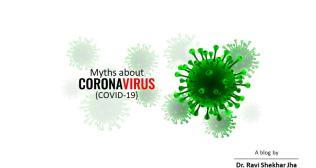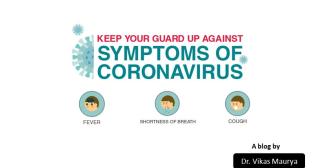
Pulmonology
Are You Having Sleepless Nights?
Dr. Manoj Kumar Goel Aug 07, 2015
Insomnia may be a symptom of an underlying disease. A detailed evaluation along with a medical history needs to be done to eliminate other conditions that could be the cause of insomnia. The sleep history should include sleep habits, medications, alcohol consumption, nicotine and caffeine intake, co-morbid illnesses and sleep environment. A sleep diary can be used to keep track of the individual’s sleep patterns. The diary should include time to bed, time to sleep onset, total sleep time, number of awakenings, use of medications, time of awakening and subjective feelings in the morning. Some patients may need to do a sleep study to determine if insomnia is present.  FEATURES OF INSOMNIA
Insomnia may be present in four ways. There may be problems of initiating sleep, frequent and/or prolonged nocturnal awakenings, early morning awakenings with an inability to return to sleep and overall poor sleep quality.
IMPACT OF INSOMNIA
Insomnia can affect you functionally as well as psychologically. The functional impairment could be associated with the lack of concentration, reduced productivity, work absenteeism and increased risk of accidents. The impact on psychological health runs risk of depression, anxiety, substance abuse and suicidal tendency.
HOW TO GET GOOD SLEEP?
A good sleep hygiene is recommended for all because sleeping right is important for a comfortable and fruitful life.
• Avoid naps: Taking naps during the day makes matters worse. But if you want to take a nap, keep it brief i.e. for 20 minutes or less.
• Eat right at night: Avoid heavy food and big meals late in the day; they tax the digestive system and make it hard to get high quality sleep. Try to finish your main meal at least two-three hours before your regular bedtime.
• Stop sipping: Drinking nothing before two hours of bedtime will help you prevent those sleep wrecking midnight bathroom trips.
• Cut the caffeine: Coffee in the morning is fine, but avoid it after noon as caffeine interferes with deeper stages of sleep.
• Rethink your drink: Although the tranquilising effects of alcohol may make you sleepy at bedtime, but beware that after the initial effect wears off, alcohol actually disrupts sleep throughout the night and can prevent the deeper stages of sleep from occurring. Therefore, avoid alcoholic beverages. You can try warm milk which contains sleep-inducing tryptophan.
• Free your mind before bedtime: Wind up your day about an hour before sleep. Put aside any work, arguments or complicated decisions. It takes time to turn off the emotional and intellectual ‘noise’ of the day. You can read something calm, meditate, listen to light music and take a warm bath.
• Neutralise noise: A quiet room is a must. Please avoid loud speakers so that you can sleep.
• Lower the lights: Before bedtime, dim the lights around the house. Lowering the lights signals your brain to produce melatonin, the hormone that brings on sleep.
• Use bedroom only to sleep: Keep ‘sleep stealers’ out of the bedroom – avoid watching TV or using a computer. Use your bedroom only for sleep and spending time with your partner.
• Modify unhelpful behaviour: Get up if you have not gone to sleep after 20-30 minutes. Do not reward the body for waking up with food, drink, cigarettes, etc. Do something relaxing to help you feel sleepy. Then go back to bed again.
• Quit smoking: Remember nicotine is a stimulant. Smoking can keep you from falling asleep and worsen insomnia. Do not smoke at least four hours before bedtime.
• Exercise right and time it right: Regular exercise has been shown to improve sleep quality. Aim to finish any vigorous exercise three to four hours before you hit the bed. Gentle mind-body exercises and yoga are fine just before the sleep.
• Set your sleep-wake up clock: Go to sleep and wake up at about the same time every day — including weekends. This routine will put your brain and body on a healthy sleep-wake up cycle.
• Beware of Sleeping Pills: Although tempting, ideally they should be used as a very short–time solution.
Do not make sleeping pills, your routine medication for insomnia.
INSOMNIA IS USED TO DESCRIBE THE INABILITY TO FALL ASLEEP OR TO STAY ASLEEP AS LONG AS DESIRED. UP TO 10 PERCENT ADULTS SUFFER FROM INSOMNIA. THIS IS MORE COMMON IN MEN AS
COMPARED TO WOMEN AND IS SEEN IN UP TO 25 PERCENT OLDER POPULATION.
FEATURES OF INSOMNIA
Insomnia may be present in four ways. There may be problems of initiating sleep, frequent and/or prolonged nocturnal awakenings, early morning awakenings with an inability to return to sleep and overall poor sleep quality.
IMPACT OF INSOMNIA
Insomnia can affect you functionally as well as psychologically. The functional impairment could be associated with the lack of concentration, reduced productivity, work absenteeism and increased risk of accidents. The impact on psychological health runs risk of depression, anxiety, substance abuse and suicidal tendency.
HOW TO GET GOOD SLEEP?
A good sleep hygiene is recommended for all because sleeping right is important for a comfortable and fruitful life.
• Avoid naps: Taking naps during the day makes matters worse. But if you want to take a nap, keep it brief i.e. for 20 minutes or less.
• Eat right at night: Avoid heavy food and big meals late in the day; they tax the digestive system and make it hard to get high quality sleep. Try to finish your main meal at least two-three hours before your regular bedtime.
• Stop sipping: Drinking nothing before two hours of bedtime will help you prevent those sleep wrecking midnight bathroom trips.
• Cut the caffeine: Coffee in the morning is fine, but avoid it after noon as caffeine interferes with deeper stages of sleep.
• Rethink your drink: Although the tranquilising effects of alcohol may make you sleepy at bedtime, but beware that after the initial effect wears off, alcohol actually disrupts sleep throughout the night and can prevent the deeper stages of sleep from occurring. Therefore, avoid alcoholic beverages. You can try warm milk which contains sleep-inducing tryptophan.
• Free your mind before bedtime: Wind up your day about an hour before sleep. Put aside any work, arguments or complicated decisions. It takes time to turn off the emotional and intellectual ‘noise’ of the day. You can read something calm, meditate, listen to light music and take a warm bath.
• Neutralise noise: A quiet room is a must. Please avoid loud speakers so that you can sleep.
• Lower the lights: Before bedtime, dim the lights around the house. Lowering the lights signals your brain to produce melatonin, the hormone that brings on sleep.
• Use bedroom only to sleep: Keep ‘sleep stealers’ out of the bedroom – avoid watching TV or using a computer. Use your bedroom only for sleep and spending time with your partner.
• Modify unhelpful behaviour: Get up if you have not gone to sleep after 20-30 minutes. Do not reward the body for waking up with food, drink, cigarettes, etc. Do something relaxing to help you feel sleepy. Then go back to bed again.
• Quit smoking: Remember nicotine is a stimulant. Smoking can keep you from falling asleep and worsen insomnia. Do not smoke at least four hours before bedtime.
• Exercise right and time it right: Regular exercise has been shown to improve sleep quality. Aim to finish any vigorous exercise three to four hours before you hit the bed. Gentle mind-body exercises and yoga are fine just before the sleep.
• Set your sleep-wake up clock: Go to sleep and wake up at about the same time every day — including weekends. This routine will put your brain and body on a healthy sleep-wake up cycle.
• Beware of Sleeping Pills: Although tempting, ideally they should be used as a very short–time solution.
Do not make sleeping pills, your routine medication for insomnia.
INSOMNIA IS USED TO DESCRIBE THE INABILITY TO FALL ASLEEP OR TO STAY ASLEEP AS LONG AS DESIRED. UP TO 10 PERCENT ADULTS SUFFER FROM INSOMNIA. THIS IS MORE COMMON IN MEN AS
COMPARED TO WOMEN AND IS SEEN IN UP TO 25 PERCENT OLDER POPULATION.
 FEATURES OF INSOMNIA
Insomnia may be present in four ways. There may be problems of initiating sleep, frequent and/or prolonged nocturnal awakenings, early morning awakenings with an inability to return to sleep and overall poor sleep quality.
IMPACT OF INSOMNIA
Insomnia can affect you functionally as well as psychologically. The functional impairment could be associated with the lack of concentration, reduced productivity, work absenteeism and increased risk of accidents. The impact on psychological health runs risk of depression, anxiety, substance abuse and suicidal tendency.
HOW TO GET GOOD SLEEP?
A good sleep hygiene is recommended for all because sleeping right is important for a comfortable and fruitful life.
• Avoid naps: Taking naps during the day makes matters worse. But if you want to take a nap, keep it brief i.e. for 20 minutes or less.
• Eat right at night: Avoid heavy food and big meals late in the day; they tax the digestive system and make it hard to get high quality sleep. Try to finish your main meal at least two-three hours before your regular bedtime.
• Stop sipping: Drinking nothing before two hours of bedtime will help you prevent those sleep wrecking midnight bathroom trips.
• Cut the caffeine: Coffee in the morning is fine, but avoid it after noon as caffeine interferes with deeper stages of sleep.
• Rethink your drink: Although the tranquilising effects of alcohol may make you sleepy at bedtime, but beware that after the initial effect wears off, alcohol actually disrupts sleep throughout the night and can prevent the deeper stages of sleep from occurring. Therefore, avoid alcoholic beverages. You can try warm milk which contains sleep-inducing tryptophan.
• Free your mind before bedtime: Wind up your day about an hour before sleep. Put aside any work, arguments or complicated decisions. It takes time to turn off the emotional and intellectual ‘noise’ of the day. You can read something calm, meditate, listen to light music and take a warm bath.
• Neutralise noise: A quiet room is a must. Please avoid loud speakers so that you can sleep.
• Lower the lights: Before bedtime, dim the lights around the house. Lowering the lights signals your brain to produce melatonin, the hormone that brings on sleep.
• Use bedroom only to sleep: Keep ‘sleep stealers’ out of the bedroom – avoid watching TV or using a computer. Use your bedroom only for sleep and spending time with your partner.
• Modify unhelpful behaviour: Get up if you have not gone to sleep after 20-30 minutes. Do not reward the body for waking up with food, drink, cigarettes, etc. Do something relaxing to help you feel sleepy. Then go back to bed again.
• Quit smoking: Remember nicotine is a stimulant. Smoking can keep you from falling asleep and worsen insomnia. Do not smoke at least four hours before bedtime.
• Exercise right and time it right: Regular exercise has been shown to improve sleep quality. Aim to finish any vigorous exercise three to four hours before you hit the bed. Gentle mind-body exercises and yoga are fine just before the sleep.
• Set your sleep-wake up clock: Go to sleep and wake up at about the same time every day — including weekends. This routine will put your brain and body on a healthy sleep-wake up cycle.
• Beware of Sleeping Pills: Although tempting, ideally they should be used as a very short–time solution.
Do not make sleeping pills, your routine medication for insomnia.
INSOMNIA IS USED TO DESCRIBE THE INABILITY TO FALL ASLEEP OR TO STAY ASLEEP AS LONG AS DESIRED. UP TO 10 PERCENT ADULTS SUFFER FROM INSOMNIA. THIS IS MORE COMMON IN MEN AS
COMPARED TO WOMEN AND IS SEEN IN UP TO 25 PERCENT OLDER POPULATION.
FEATURES OF INSOMNIA
Insomnia may be present in four ways. There may be problems of initiating sleep, frequent and/or prolonged nocturnal awakenings, early morning awakenings with an inability to return to sleep and overall poor sleep quality.
IMPACT OF INSOMNIA
Insomnia can affect you functionally as well as psychologically. The functional impairment could be associated with the lack of concentration, reduced productivity, work absenteeism and increased risk of accidents. The impact on psychological health runs risk of depression, anxiety, substance abuse and suicidal tendency.
HOW TO GET GOOD SLEEP?
A good sleep hygiene is recommended for all because sleeping right is important for a comfortable and fruitful life.
• Avoid naps: Taking naps during the day makes matters worse. But if you want to take a nap, keep it brief i.e. for 20 minutes or less.
• Eat right at night: Avoid heavy food and big meals late in the day; they tax the digestive system and make it hard to get high quality sleep. Try to finish your main meal at least two-three hours before your regular bedtime.
• Stop sipping: Drinking nothing before two hours of bedtime will help you prevent those sleep wrecking midnight bathroom trips.
• Cut the caffeine: Coffee in the morning is fine, but avoid it after noon as caffeine interferes with deeper stages of sleep.
• Rethink your drink: Although the tranquilising effects of alcohol may make you sleepy at bedtime, but beware that after the initial effect wears off, alcohol actually disrupts sleep throughout the night and can prevent the deeper stages of sleep from occurring. Therefore, avoid alcoholic beverages. You can try warm milk which contains sleep-inducing tryptophan.
• Free your mind before bedtime: Wind up your day about an hour before sleep. Put aside any work, arguments or complicated decisions. It takes time to turn off the emotional and intellectual ‘noise’ of the day. You can read something calm, meditate, listen to light music and take a warm bath.
• Neutralise noise: A quiet room is a must. Please avoid loud speakers so that you can sleep.
• Lower the lights: Before bedtime, dim the lights around the house. Lowering the lights signals your brain to produce melatonin, the hormone that brings on sleep.
• Use bedroom only to sleep: Keep ‘sleep stealers’ out of the bedroom – avoid watching TV or using a computer. Use your bedroom only for sleep and spending time with your partner.
• Modify unhelpful behaviour: Get up if you have not gone to sleep after 20-30 minutes. Do not reward the body for waking up with food, drink, cigarettes, etc. Do something relaxing to help you feel sleepy. Then go back to bed again.
• Quit smoking: Remember nicotine is a stimulant. Smoking can keep you from falling asleep and worsen insomnia. Do not smoke at least four hours before bedtime.
• Exercise right and time it right: Regular exercise has been shown to improve sleep quality. Aim to finish any vigorous exercise three to four hours before you hit the bed. Gentle mind-body exercises and yoga are fine just before the sleep.
• Set your sleep-wake up clock: Go to sleep and wake up at about the same time every day — including weekends. This routine will put your brain and body on a healthy sleep-wake up cycle.
• Beware of Sleeping Pills: Although tempting, ideally they should be used as a very short–time solution.
Do not make sleeping pills, your routine medication for insomnia.
INSOMNIA IS USED TO DESCRIBE THE INABILITY TO FALL ASLEEP OR TO STAY ASLEEP AS LONG AS DESIRED. UP TO 10 PERCENT ADULTS SUFFER FROM INSOMNIA. THIS IS MORE COMMON IN MEN AS
COMPARED TO WOMEN AND IS SEEN IN UP TO 25 PERCENT OLDER POPULATION.
Categories
Clear allMeet the doctor

Dr. Manoj Kumar Goel
DIRECTOR & UNIT HEAD PULMONOLOGY | Fortis Faridabad
- Pulmonology | Pulmonology
-
28 Years
-
1900
 Available at 1 different locations
Available at 1 different locations

Fortis Gurgaon
















}}drupal-data/images/blog-lists.png)


